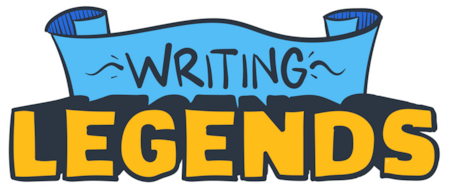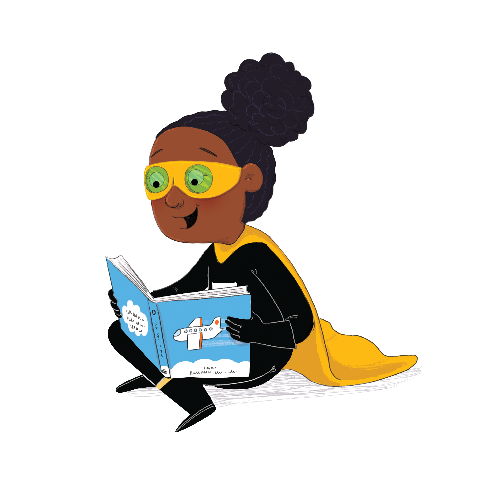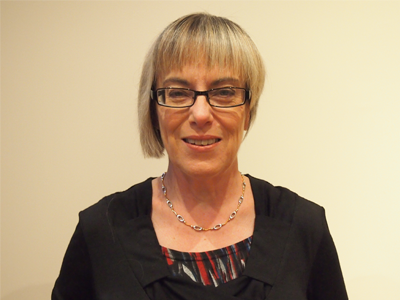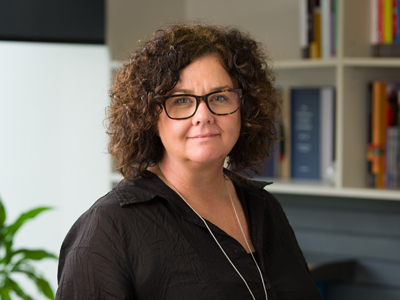Jump to section: What we learned | Read the stories
Children’s Word of the Year has revealed 'privacy' is a top concern for students
Data from Oxford University Press in partnership with Storyathon, Australia’s largest online story-writing event for students, reveals ‘Privacy’ as the Oxford Australian Children’s Word of the Year (CWOTY) 2022 with a 300% increase in usage from the previous year.
Oxford Australian
Children's Word of the Year 2022:

Australian students are becoming increasingly aware of the importance of online privacy and how to protect themselves online, a concern which has been highlighted through their writing, as ‘privacy’ is awarded Oxford Australian 2022 Children’s Word of the Year (CWOTY).
The topic of privacy is especially relevant in this current environment, given the string of high profile cyber attacks and information leaks which have occurred this year.
Children’s language experts analysed more than 87,117 short stories and over 7.5 million words written by Australian students aged seven to 13 years old as part of Storyathon, Australia’s largest online story-writing event for students. Shortlisted words included ‘impact’, ‘information’, ‘opinion’, ‘pollution’, ‘privacy’ and ‘risk’.
Our research highlighted:
- There was a strong trend towards words associated with the internet, data protection and online behaviour this year. Words such as, ‘‘information’, ‘privacy’ and ‘risk’ all experienced a significant uptake from students compared to the previous year. ‘Personal information’ and ‘online information’ were also common phrases that featured in the body of writing.
- The increased awareness of online activity is likely due to students’ having highly connected worlds, following two years of online learning and virtual socialising as a consequence of the pandemic.
- Ethical issues are also raised, with students sympathising with celebrities that have their privacy invaded on a daily basis and have to endure life in the spotlight.
- The need to unplug and take some time away was also important with students describing the need for a private space, such as a bedroom or dedicated area where they can unwind.
- Other themes that emerged within the large body of writing included a strong concern for the environment, with concepts like carbon dioxide and pollution featuring strongly in this year’s writing as students call for action on climate change and conservation.
- Through our analysis it seems that some students are struggling to adjust to their new, highly connected world following the pandemic. So much of our lives are now conducted online and students are no different. As a result, students appear to wrestle with how the internet can provide connection during times of isolation but also pose significant risks to them if it is abused.
Anne Bayetto, Literacy expert at Flinders University, highlighted the usage of the word ‘privacy’ had increased by 397% compared to 2021. She explains the increased awareness of online activity is likely due to students’ having highly connected worlds, following two years of online learning and virtual socialising as a consequence of the pandemic. "Students are recognising some of the risks of the internet and the importance of protecting their privacy and ensuring that their personal information is safe. As we continue to live with COVID-19 among other unfolding global crises, students are becoming acutely aware of the risks around them. It could be that they are considering risks more often in their lives and how they can protect themselves from these risks.”
Lee Walker, Director of Publishing at Oxford University Press, also spoke about the Australian Children’s Word of the Year esearch. “This year it’s been fascinating to see a focus on a need for control among students, specifically around online activity and the environment. Through our analysis it seems that some students are struggling to adjust to their new, highly connected world following the pandemic. So much of our lives are now conducted online and students are no different. As a result, students appear to wrestle with how the internet can provide connection during times of isolation but also pose significant risks to them if it is abused."
Partnering with Writing Legends
The Oxford Australian Children’s Word of the Year is one of the ways Oxford Children’s Language Australia and OUP engages with the ever-changing language of Australian children. We’ve proudly partnered with Writing Legends, Australia's largest online story-writing platform, to help us determine the 2022 Oxford Australian Children’s Word of the Year.

Our experts comments on the Oxford Australian CWOTY:

Lee Walker
Lee is Director of Publishing, Editorial and Design at OUP ANZ and is also President of the Australian Publishers Association. She has almost 30 years’ experience in Australian educational publishing and is passionate about digital innovation.
Explore what we learned from the children's stories
Children from all around Australia wrote 87,117 stories. Here's what we learned.
Theme 1: Ethics
- Students are reflecting on ethical issues, pondering their rights and responsibilities, and the impact of their choices on each other and the world around them. Even the word ‘should’ was much more commonly used this year, compared to last year.
Theme 2: Mental health and wellbeing
- Students are writing about mental health issues and social/emotional concepts, such as anxiety and depression, as well as kindness, leadership, and confidence.
Theme 3: Environment
- There is a strong pattern of themes about the environment, with concepts like carbon dioxide and pollution figuring strongly into this year’s writing as students call for action on climate change and conservation.
Theme 4: Information
- From protecting personal information to researching facts before making a decision, students wrote this year about the impact of the internet on their lives, and the proliferation of information in their worlds, even from a young age. Students also thought about the importance of forming their own opinions and respecting others’ opinions within this information-saturated world.
The top 20 trending words of 2022
Top trending words, 1-10
(Change in use over time)
| Rank | Word | Frequency | Rank change number |
|---|---|---|---|
| 1 | the | 374,629 | 0 |
| 2 | and | 240,885 | 0 |
| 3 | i | 208,574 | 0 |
| 4 | to | 208,480 | 0 |
| 5 | a | 190,890 | 0 |
| 6 | was | 136,511 | 0 |
| 7 | it | 118,354 | 0 |
| 8 | of | 102,853 | 0 |
| 9 | in | 92,204 | 1 |
| 10 | he | 90,339 | 2 |
Top trending words, 11-20
(Change in use over time)
| Rank | Word | Frequency | Rank change number |
|---|---|---|---|
| 11 | you | 89,558 | -2 |
| 12 | that | 71,928 | 2 |
| 13 | is | 71,532 | 0 |
| 14 | my | 65,836 | -3 |
| 15 | but | 60,526 | 1 |
| 16 | they | 59,528 | 1 |
| 17 | for | 53,721 | 2 |
| 18 | so | 53,403 | -3 |
| 19 | on | 50,738 | -1 |
| 20 | she | 49,451 | 1 |
Read a selection of the children's stories
Please note spelling and grammar has been corrected in the samples presented. Citations are faithful to the original stories.
There is no doubt that human activity is having a significant impact on the environment. These environmental impacts include depleting our natural resources, air and water pollution, climate change destruction of habitats, and loss of biodiversity. Year 6, female
There was this young boy named Ali who mysteriously found something in his house. During the day Ali wanted to find out what it was but he didn't want to just go in there if he doesn't know what it is, so he came up with a plan. Ali got his friends and searched some information on his laptop. They prepared everything for this. After a while Ali and his friends went in, Ali went first and saw something move when he went in there. He described it, it was big, circle, and holes in it. One of Alis friends said it was a eye. Ali quickly sprinted away and hoped to never return back. THE END. Year 7, male
In my opinion zoos should be closed down, because if they ever let the animal go again, it might not know how to hunt! If it was a carnivore. If not it would be scared imagine if you were taken away from your family and friends? It's like moving to a different contry! Leaving behind everything! But zoos have saved many, many creatures! Like the tiny Cobaree frog, or the regent honeyeater. But have you ever been to a zoo if you have, did the animals look happy to you? Year 5, male
In a few thousand years earth would be killed by all the heat and pollution from humans. when we go to the upgrade the moon base we can start the new human race up there.Once we have a moon base we will get better knowledge and know more about planets to go explore more planets like mars. and make space ships that go between earth and the moon all the time.The population will grow continually so earth will be full It can also be a back up planet if earth goes extinct. Year 5, male
Do you think that drones should be used for policing? I think that this is a terrible idea!. Firstly, I don't think drones should be used for policing becasue it's a invasion of privacy but it can aslo be helpful to record vital evidence for court use. It could be fitted with weapons, I'm not saying that drones are bad because some people can spy on you or they can stalk your phone number, gmail password, Facebook accounts, Instagram, Snapchat but they can be useful why? Becuase instead of sending lots of helicopter officers you can send in a drone to help them capture a bad criminal. We don't know how sorted images and video will be used in the future. Year 7, female




